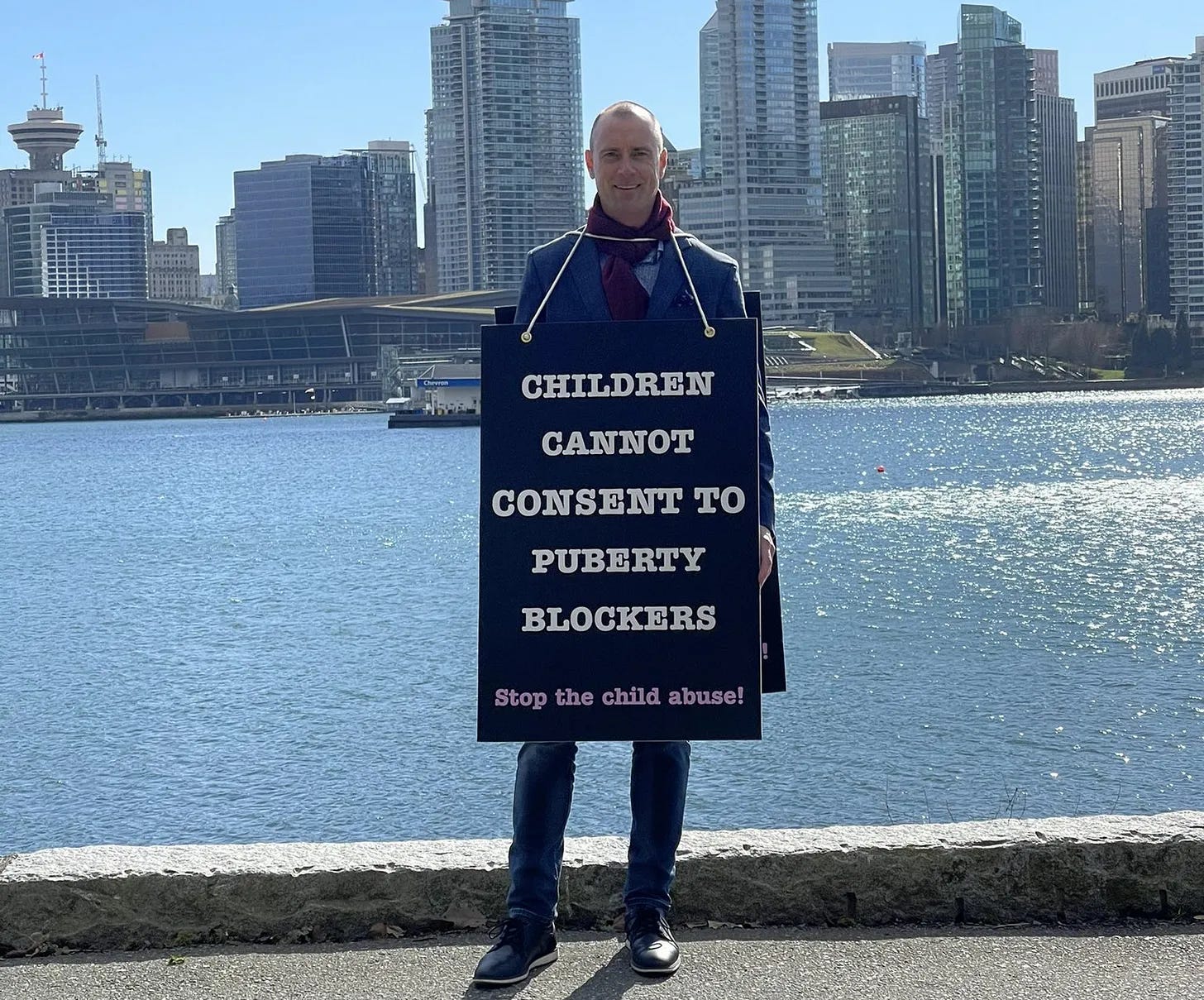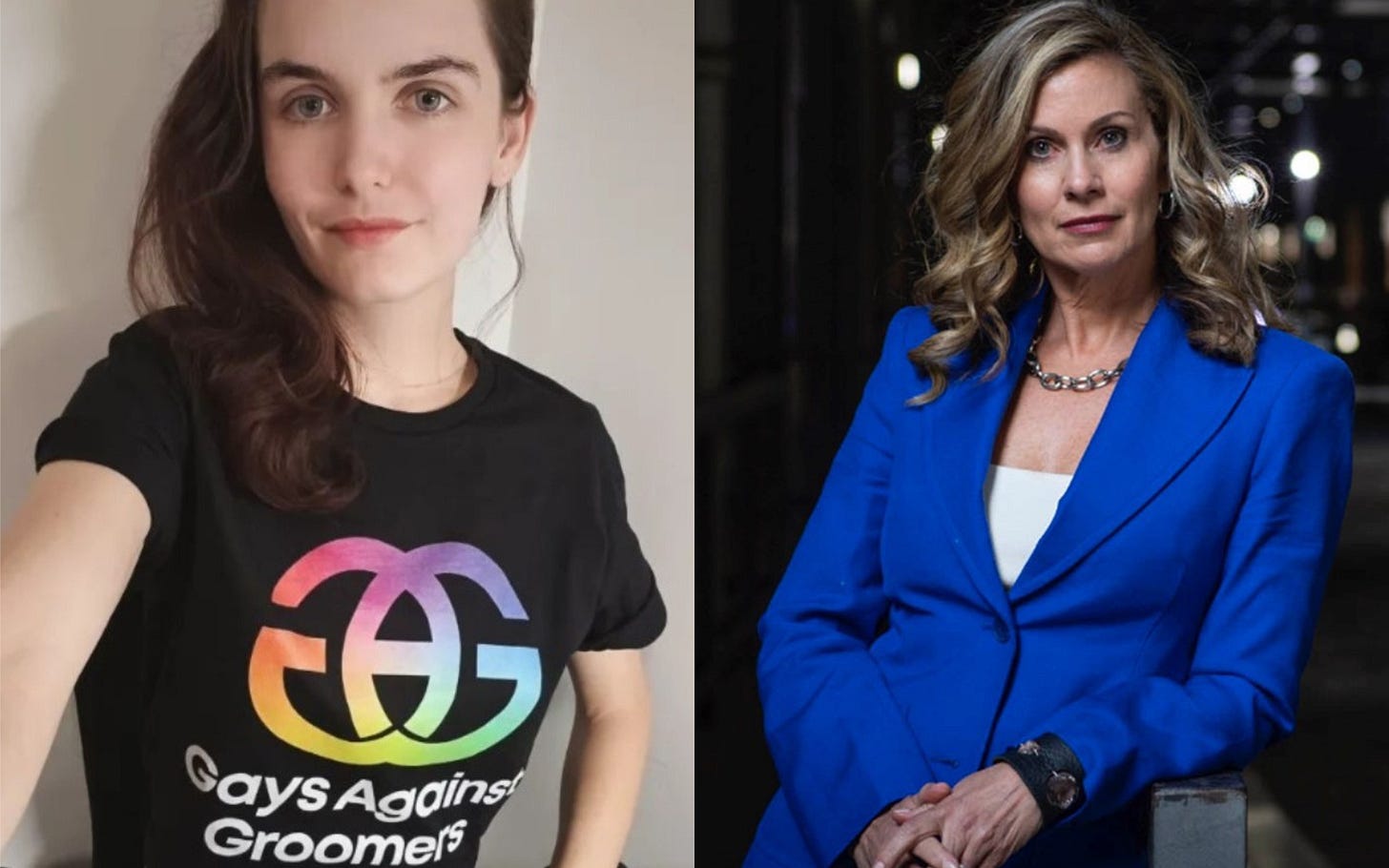Free speech win in legal fight against eSafety Commissioner
The eSafety Commissioner’s use of an informal process to censor social media posts while evading transparency and accountability has been called into question in a significant legal ruling.
Gays Against Groomers activist Celine Baumgarten has won her legal battle against Australia’s online safety regulator, which sought to censor a post she made to social media in May of last year sharing publicly available information about a Melbourne primary school queer club and its organiser.
Baumgarten’s post was geo-blocked on X after eSafety sent an informal notice alleging that her post appeared to “intimidate and harass the complainant,” despite the regulator admitting during proceedings that it did not meet the legal threshold for removal.
With legal assistance from the Free Speech Union of Australia (FSU Australia) Baumgarten attempted to appeal the eSafety notice, but the Commissioner, Julie Inman Grant, argued that the notice could not be appealed because it was ‘informal.’
However, in a decision on 5 February, Justice Emilio Kyrou ruled that the informal notice can be appealed, levying criticisms of eSafety’s informal notice system and “potentially serious consequences” it has for social media users.
“The results of this case prove… that the eSafety Commissioner and her office are acting unlawfully,” a triumphant Baumgarten told Outsiders on Sunday evening.
“They rely on what they call informal notices to send to social media companies, and they… use their aura of authority to censor posts that don’t meet the required standards in the Online Safety Act (OSA).”
Celine Baumgarten on Outsiders, via @celinevmachine on X (Video 7 mins 40 sec)
This is not the first time eSafety has been pulled up for overstepping its statutory bounds - last year, a judge ruled that eSafety's attempt to enforce a global ban on footage of a stabbing incident was 'not reasonable.'
This latest legal decision calls into question the validity of eSafety’s use of the informal scheme, and has the potential to empower users whose content has been removed from social media sites under the informal notice system.
Informal complaints system avoids transparency and accountability
“The Administrative Review Tribunal has exposed the eSafety Commissioner’s scheme of sending ‘informal takedown orders’ that can’t be reviewed,” said Dr Reuben Kirkham, Co-Director of the FSU Australia, in a statement after the decision.
“This is a tactic they have been using in 99% of their cases to try and avoid accountability for their censorious behaviour,” said Dr Kirkham.
eSafety’s Annual Report 2023-2024 shows that the vast majority of notices that the regulator issued to social media platforms during this period were informal. Under the Adult Cyber Abuse scheme, eSafety made 383 informal notifications, with platforms removing material in 284 (74%) of cases. Only three formal removal notices were issued during this time.
During the Baumgarten and eSafety Commissioner proceedings, Inman Grant argued that informal cooperative mechanisms are preferable to resorting to eSafety using its coercive powers.
However, Justice Kyrou said that eSafety’s reliance on the informal notice process as its “predominant regulatory mechanism” resulted in a “less transparent” system that failed to strike “the balance between the community’s right to free speech and its right to be protected from cyber-abuse material targeted at an Australian adult.”
No statutory basis for eSafety’s informal notice system
Furthermore, Justice Kyrou suggested that in operating this informal notice system, the eSafety Commissioner had acted outside of her statutory powers.
Inman Grant argued that it is her role to advocate for complainants and to assist them in achieving removal of material from social media platforms.
However, Justice Kyrou said that “there are no clear, objective criteria for determining when a complaint alert can be given,” leaving the door open to the subjective decisions of individual investigators.
This is exemplified in Baumgarten’s case, in which eSafety determined that her post did not meet the threshold for a formal removal notice under the OSA, but proceeded with an informal notice anyway, resulting in X geo-blocking the post.
“It is undesirable that there is no express statutory basis in the OSA for such [informal] alerts and [advocacy] roles,” said Justice Kyrou.
Justice Kyrou also noted that eSafety’s informal notice system has “potentially serious consequences” in that it not only circumvents the rights of end-users whose content has been taken down without recourse, but also of the victims of cyber abuse who make complaints to eSafety, but cannot challenge the Commissioner’s ‘informal’ decisions on whether or not to act on the complaint.
Do platforms have to follow through with informal notices?
In the hearing, eSafety argued that X could simply have not followed through with the informal notice. After all, a similar informal notice was sent to Meta about Baumgarten’s post, but Meta did not take action.
However, Justice Kyrou heard that X’s notice was received through its “Legal Requests Portal,” so it follows that X’s team initially took the notice to be a legal request (the geo-block was later lifted and the post is now visible again in Australia).
Furthermore, given that platforms can be fined up to $165,000 (AUD) for failure to comply with a removal notice from eSafety, platforms may err on the side of caution when in doubt (although under Elon Musk’s leadership, X has famously defied the Commissioner’s takedown orders on other occasions).
Regardless, Justice Kyrou said that the regulator’s intent behind the notice was not relevant if “the giving of the alert… had a real and practical impact on the applicant’s rights,” such as a platform censoring a person’s post in Australia.
As mentioned, three quarters of eSafety’s informal notices issued in relation to alleged adult cyber abuse are acted upon by platforms, even though they may not meet the criteria for removal under OSA provisions.
The Baumgarten case will now proceed to appeal unless the eSafety Commissioner withdraws.
Battle for free speech continues
Next up, the eSafety Commissioner will face Canadian activist Chris Elston, better known as Billboard Chris for wearing placards protesting against child gender medicine, at a tribunal in March over her censorship of a social media post challenging gender ideology.
Elston is represented by the Human Rights Law Alliance, which predicts that “a win in this case would set an important precedent in the ongoing efforts to change law and culture in Australia.”

However, there will need to be more than a few tribunal wins to safeguard free speech in Australia.
A Statutory Review of the Online Safety Act culminated late last year with recommendations to expand and strengthen the eSafety Commissioner’s powers.
And, a hate speech bill passed in Parliament last week promises to deliver “the toughest laws Australia has ever had against hate crimes” in the wake of a spate of antisemitic attacks.
The new laws were enthusiastically welcomed by Inman Grant, who said, “If recent events have shown us anything, it’s that we need to do more to protect Australians from hateful attacks wherever they occur..."
“I urge Australians to visit eSafety.gov.au to report harmful content, particularly if the platform does not take action and to seek out information, resources and advice.”
Postnotes
Baumgarten and FSU Australia are celebrating their win, and have been promoting an online tool created by FSU for Australians to find out if the eSafety Commissioner has ever tried to take down your social media posts.
Watch Dr Kirkham’s interview about the legal win on the MilkBar TV Podcast.
Read, ‘Julie Inman Grant has made Australia a key player in the global censorship push.’
To support my work, share, subscribe, and/or make a one-off contribution to my Kofi account. Thanks!



Thank you Rebekah, another balanced report, informing us of the undermining process taking place in Govt. I wonder why some people in our country are so keen to dismantle our democracy. But I won't waste my time trying to get into why psychopathy exists. It does, and has, for a long time. It seems the greater the wealth and power the more the humanity dies in many folks. It has been thousands of years that the powerful have tried to enslave the rest of the people. Are we all awake to this yet??
Great work